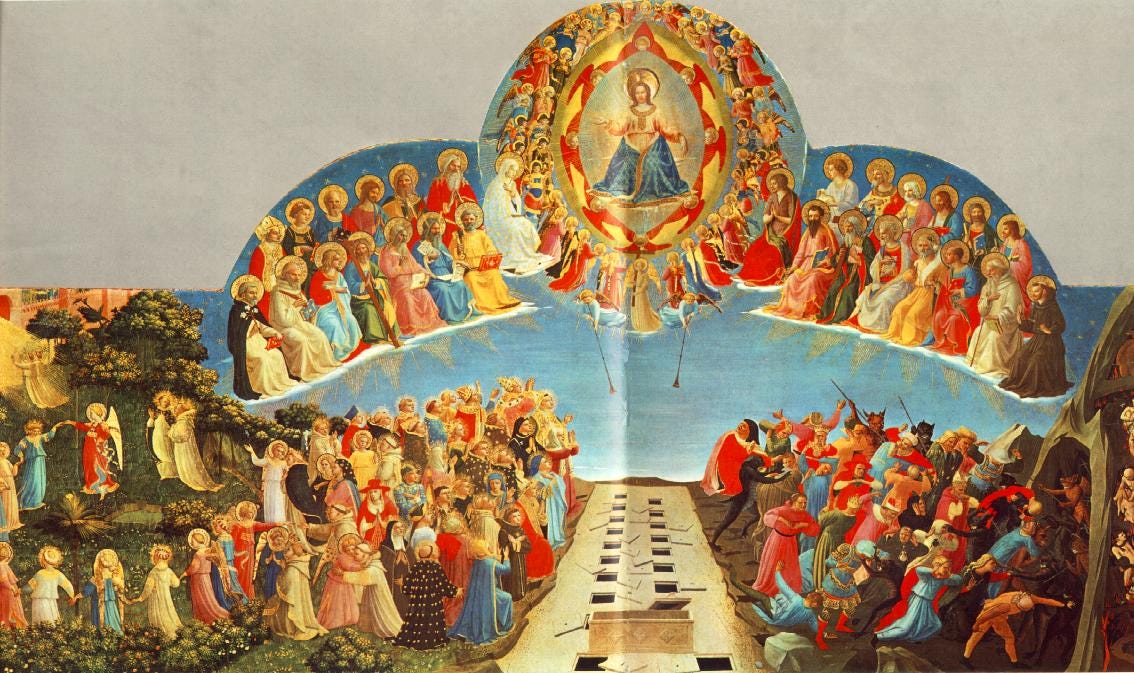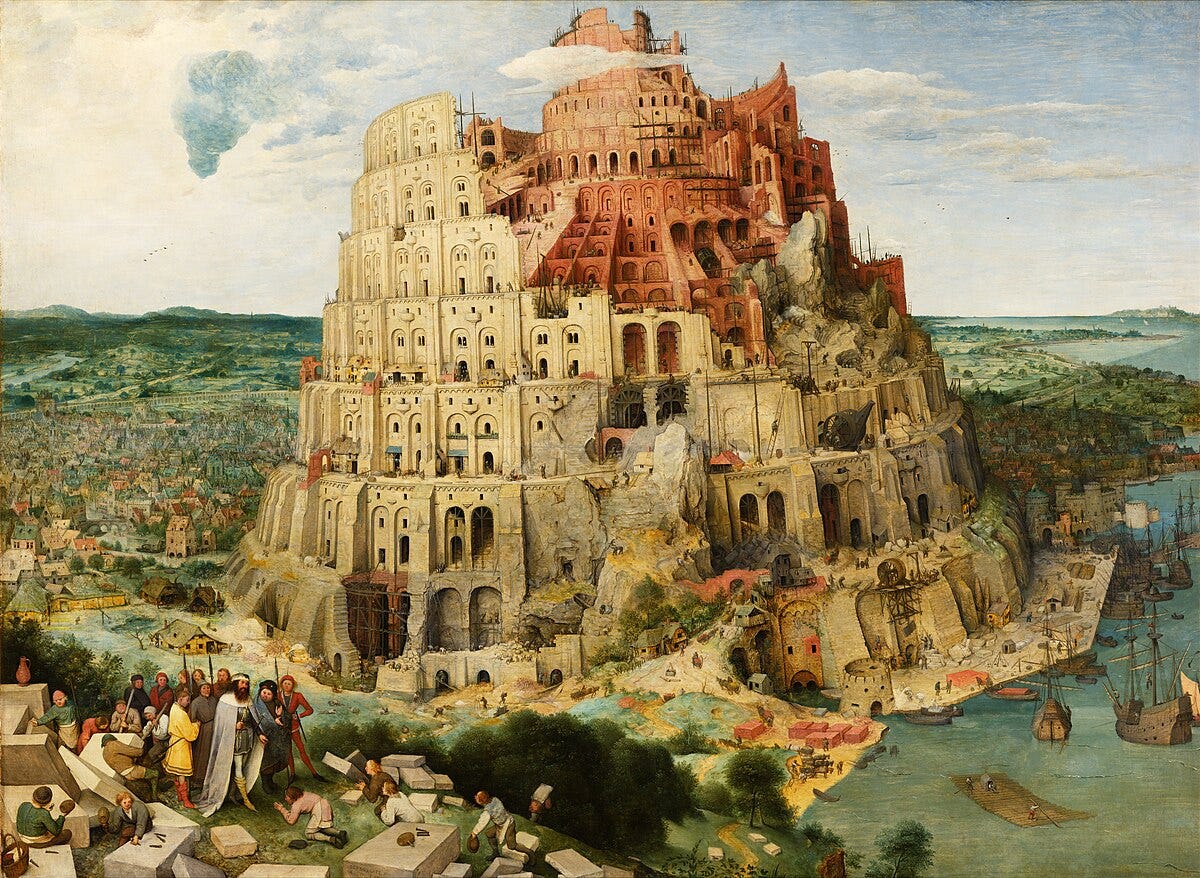The Garden of Eden or the Garden of Evil?
Where are we?
A Question Older Than Time
Is this world paradise, or prison? A sanctuary of divine beauty, or a battlefield soaked in blood?
Every generation has asked this question in its own way. Ancient myths spoke of golden ages lost. Philosophers debated whether the cosmos was orderly or cruel. Today, we look at melting icecaps, polluted skies, and crumbling institutions, and wonder: is the Earth itself good? Or has it become a garden of evil?
For Christians, the answer requires a paradoxical vision. The Earth is both Eden and exile: a world created good, yet wounded by sin. It is the arena of both beauty and brutality, a place where the presence of God still shines, but where the serpent still coils in the branches.
The Goodness of Creation
Scripture begins with a resounding affirmation: “God saw everything that He had made, and behold, it was very good.” (Genesis 1:31).
The world is not an accident of blind forces, it is crafted, ordered, and blessed. Every sunrise, every stream, every orchard and mountain still echoes this original goodness.
The Garden of Eden was not a mythic nowhere, it reveals the truth about creation: Earth was intended as a sanctuary of communion, where humanity walked with God in harmony.
The psalms praise creation as a cathedral: “The heavens declare the glory of God” (Psalm 19:1).
The Incarnation confirms this truth: God Himself took on flesh and entered this Earth, affirming its dignity.
When we stand under the stars or smell rain on the soil, we touch remnants of Eden. The Earth remains shot through with goodness.
The Corruption of the Garden
But Genesis also records the serpent. The same ground where God planted life became the stage for rebellion. Humanity grasped at divinity on its own terms, and the Garden became the site of exile.
Sin did not erase the Earth’s goodness, but it corrupted its harmony.
Thorns and toil replaced effortless fruit. Death entered where only life was meant to be.St. Paul writes: “The whole creation has been groaning as in the pains of childbirth right up to the present time” (Romans 8:22).
Creation itself is restless, caught between its Edenic origin and its redeemed destiny.
This is the paradox: Earth is not hell, but neither is it still Eden. It is the garden of good and evil, a place where wheat and tares grow together until the harvest (Matthew 13:30).
Earth as a Training Ground
What if Earth then is not simply Eden lost or evil unmasked, but a training ground for eternity? A proving ground where the heart is tested, where temptation is confronted, and where faith is refined?
Christ Himself hints at this in the parable of the wheat and the tares:
“Let both grow together until the harvest. At the harvest time I will tell the reapers, ‘Gather the weeds first and bind them in bundles to be burned, but gather the wheat into my barn.’” (Matthew 13:30)
This parable reveals the mystery of the present age. Earth is not the final kingdom, it is the field where character is revealed. Good and evil grow together, outwardly similar, but inwardly distinct. Only in the harvest will their true natures be exposed.
The trials of life become the crucible where temptation refines us.
Free will is the measure by which we choose to become wheat or weed, saint or shadow.
Those who resist the corruption of sin are gathered as the wheat, chosen for the eternal harvest of salvation.
St. Paul echoes this in 2 Timothy 4:7–8: “I have fought the good fight, I have finished the race, I have kept the faith. Henceforth there is laid up for me the crown of righteousness.” Earth, then, is the arena of that race, the field of that fight.
Conflict as Life
Life itself is structured in this underlying tension. For the animal to live, it must eat the plant. For the rose to grow, it must defend itself with thorns. Survival, struggle, and balance are not accidents, they are woven into creation’s fabric.
This is not evil in itself. The lion eating the gazelle is not the same as Cain killing Abel. Natural conflict is part of creation’s drama; moral evil comes only when free beings twist their will away from God.
St. Thomas Aquinas taught that the universe’s harmony includes diversity, limitation, and even opposition: without contrast, creation would lack its full beauty.
But when sin entered, the natural struggle of life was compounded by disorder of the soul. Conflict turned to corruption. Harmony tilted into violence.
Thus, while conflict is necessary for life, sin parasitically transforms it into death. In creation, struggle sustains. In sin, struggle enslaves.
Earth as the Arena of Choice
The question “Eden or Evil?” is not just about nature; it is about us. The Earth mirrors our own souls: created good, corrupted by sin, and awaiting redemption.
Medieval writers called the world a theatrum mundi, a theater of the soul’s salvation. Here, angels and demons contend for human hearts.
Augustine saw the Earth as part of the struggle between the City of God and the City of Man. Both are present, both grow together until judgment.
Like the vampire myth that parodies the Eucharist, the Earth too is a stage where holiness is imitated and twisted. Every marketplace, screen, or institution can be an altar of God or an altar of idols.
Earth, then, is neither pure Eden nor total evil… It is the field of decision, where each generation must choose which garden it will cultivate.
Modern Idols in the Garden
Our culture often denies this tension. Some secular voices declare Earth is still Eden, perfectible by technology, free of moral stain. Others call it a doomed wasteland, climate collapse, war, and nihilism prove it is already hell.
Both views are distortions.
Utopian Edenism - The belief that humanity can build paradise through politics, science, or progress. Yet each utopia decays into dystopia when sin is ignored. The Tower of Babel still rises in new forms.
Despairing Evilism - The belief that Earth is nothing but cruelty and futility. This is the voice of nihilism, denying the beauty still shining in creation. Denying the effort and time gone into the design.
Both views are used by humans for manipulative means, you are told not to have children as the world is "dying" due to the climate. Others tell you to dedicate your life to a career and not family in the name of "progress", both tell you to trust the science. There is a third path however.
The Christian vision resists both extremes. Earth is scarred, but not abandoned. Even in an age of corruption, Christ still walks in the garden at the cool of the day, calling: “Where are you?” (Genesis 3:9).
Living Between Eden and Evil
What does this mean for us?
We are called to see Eden still shimmering in creation: the goodness of the Earth, the dignity of every person, the joy of beauty.
We are warned to see the serpent coiled in the branches: the corruption of sin, the idols of culture, the parasitic systems that drain life.
We are invited to cultivate the garden: to live as stewards, to resist despair, to nurture holiness in the soil of our lives.
Conflict remains but the Christian does not fear it. As Paul says: “Suffering produces endurance, endurance produces character, and character produces hope” (Romans 5:3–4).
The thorns of the rose do not cancel its beauty; the labor of the soil does not erase its fruit. Anyone who has grown their own food knows the effort only makes it sweeter.
Conclusion
So is Earth Eden or Evil? The answer is both and neither. It is Eden wounded, corrupted, but with the possibility of redemption. Earth still strives a delicate and intricate balance with the choice between good or evil still possible. It is an almost eternal battleground that we live in every day. It is around us, it tempts us, but it can be worked. The land can be made into something better and so can the people.
Ephesians 2 reminds us: without grace, we are dead in sin, restless as the undead. Yet with Christ, we are raised, restored, and made new. The same is true for creation.
Until then remember Samwise's words to Frodo, though life is difficult and the world not perfect...
“There’s some good in this world, Mr. Frodo, and it’s worth fighting for.”
— Samwise Gamgee, The Lord of the Rings: The Two Towers (J.R.R. Tolkien)
Free will by God allows you to choose what you will do.








